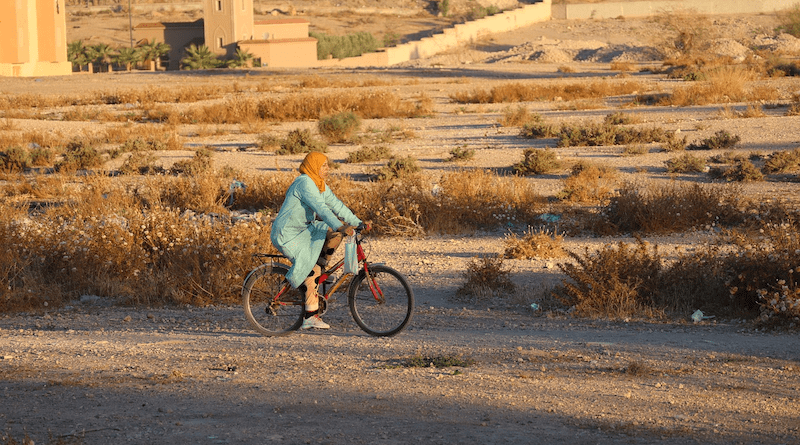Psychosocial Empowerment Workshops – OpEd
The earthquake in the Al Haouz and surrounding provinces caused profound loss. NGOs mobilized their resources to provide vital assistance to the affected families. The High Atlas Foundation established partnerships with international organizations, including Project Hope. Together, we launched psychosocial empowerment sessions with communities, as we continue to distribute essential supplies, such as food, blankets, and tents, and assess and implement water infrastructure projects.
Psychosocial empowerment comprises a series of support workshops aimed at healing the emotional pain and trauma caused by the crisis. As part of a collaborative effort, 4-day workshops were introduced to the affected areas, including Tikste, Tinmel, Tizgharine, Ait Ayoub, Azro, Ashbarou, Tafza, Tagherghis, and Tifkritt. A total of 279 women and girls benefited from these workshops.
Recognizing HAF’s commitment to serving to restore the emotional balance of families, we provide parallel care of school age children. This was particularly important due to the disruption of regular schooling caused by damaged infrastructure and school buildings awaiting repair. Approximately 186 children, aged between 4 and 11, both boys and girls, benefitted from this initiative.
Upon our initial encounters with women in these areas, grief and pain in their eyes were evident. Their faces were swollen from mourning over the lost relatives and neighbors. The landscape was dominated by damaged homes, rickety fences, and scattered furniture. It was difficult for anyone to witness the extent of devastation, with the memories of these events deeply etched in the minds of those impacted.
Upon our arrival in Tinmel, we were greeted by Ms. Widdad, who guided us to the school where we met with women who were desperately seeking support. Among them were those who had lost their entire family and those who had lost their main sources of support.
The first workshop centered on themes of mourning and surviving disaster, evoking most deep emotions. However, as the facilitators began their discussions, the woman regained composure and expressed their readiness to share their experiences.
Fatima shared her story, saying, “I don’t know how I survived the wreckage and the sound of the earthquake still didn’t make my head apart, wherever I went, I heard that sound.” She continued, “the sound rarely leaves my head and it causes me pain in my whole body, wondering when that pain will end.” Rashida added, “I lost my son who was the age of flowers, how can I live with the situation?”
The tragedies these women experienced were heart-wrenching, and words cannot capture the extent of their suffering. And so while we cannot alter reality, the aim of these workshops is to offer hope with these women. The workshops seek to encourage them to believe that the future can hold better days. While the material losses cannot be fully compensated, we can gain mercy and work towards supporting these individuals in their recovery.
The workshops were designed to explore the psychological trauma experienced by the women; not to rekindle the painful memories, but to assess the impact of the trauma on their well-being. The trauma of the earthquake affected every woman differently. Each woman has varying degrees and types of trauma based on their personal experiences. Each woman has unique ways of processing trauma. Given the diverse reactions to trauma, facilitating a space for all to feel comfortable expressing their feelings is challenging, and imperative.
In contrast, children responded more positively to the workshops. They actively engaged in activities such as drawing, coloring, and games that involve numbers and letters in Arabic. While schools remained closed, it was essential to create a suitable learning environment for these children. Through their engagement at the workshops, it was evident that the children held significant hope and aspirations for a better future, despite the challenging circumstances. This observation highlighted the resilience of children in coping with crises compared to adults.
The project of psychosocial empowerment recognizes that the road to recovery for those who have lost their loved ones and homes will be neither swift nor easy. But it is necessary to sustain to help these families recover their lost self under the rubble, which has not yet been recovered even though they are alive. The project will require sustained efforts and support to help these families regain their sense of selves and rebuild their lives, a task that remains ongoing.

